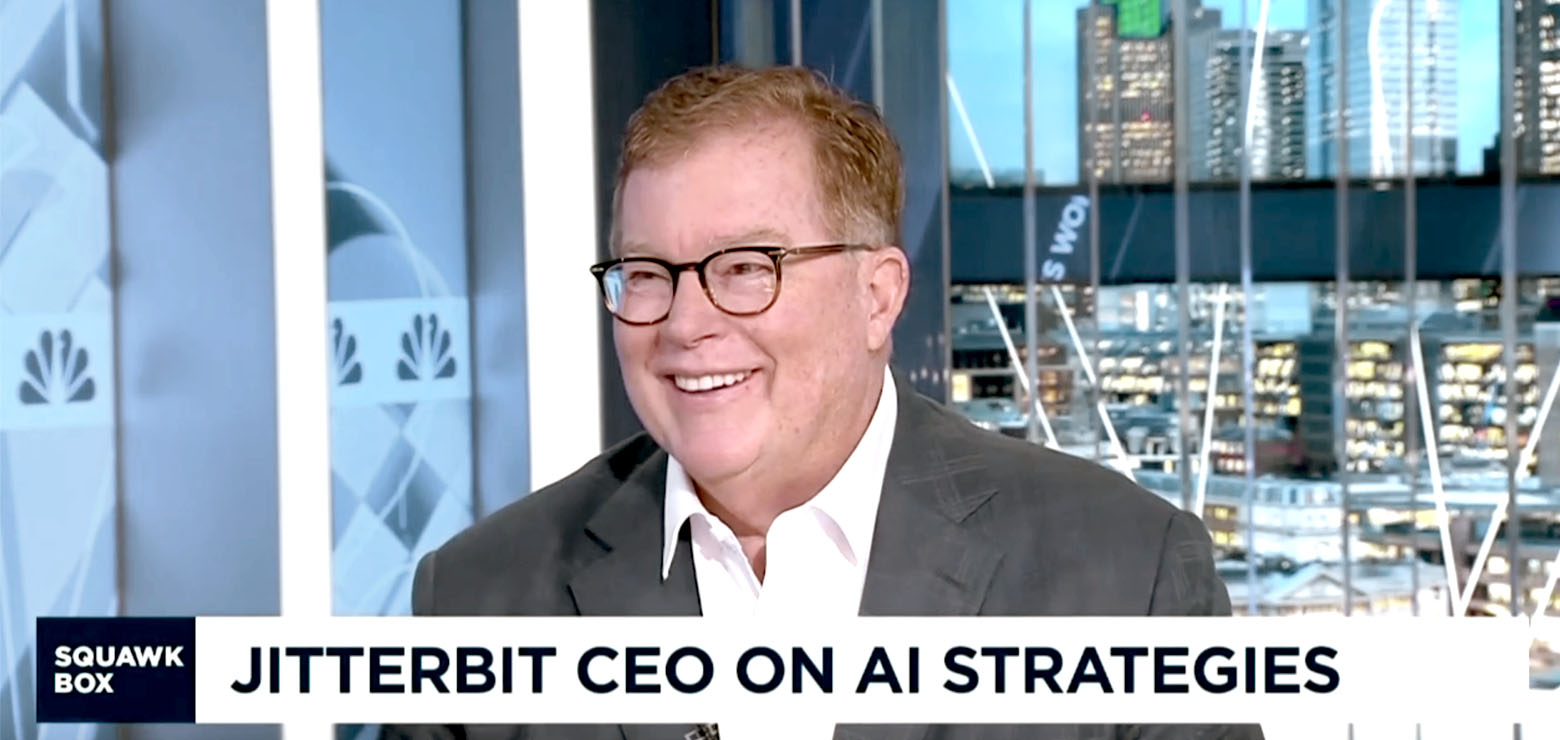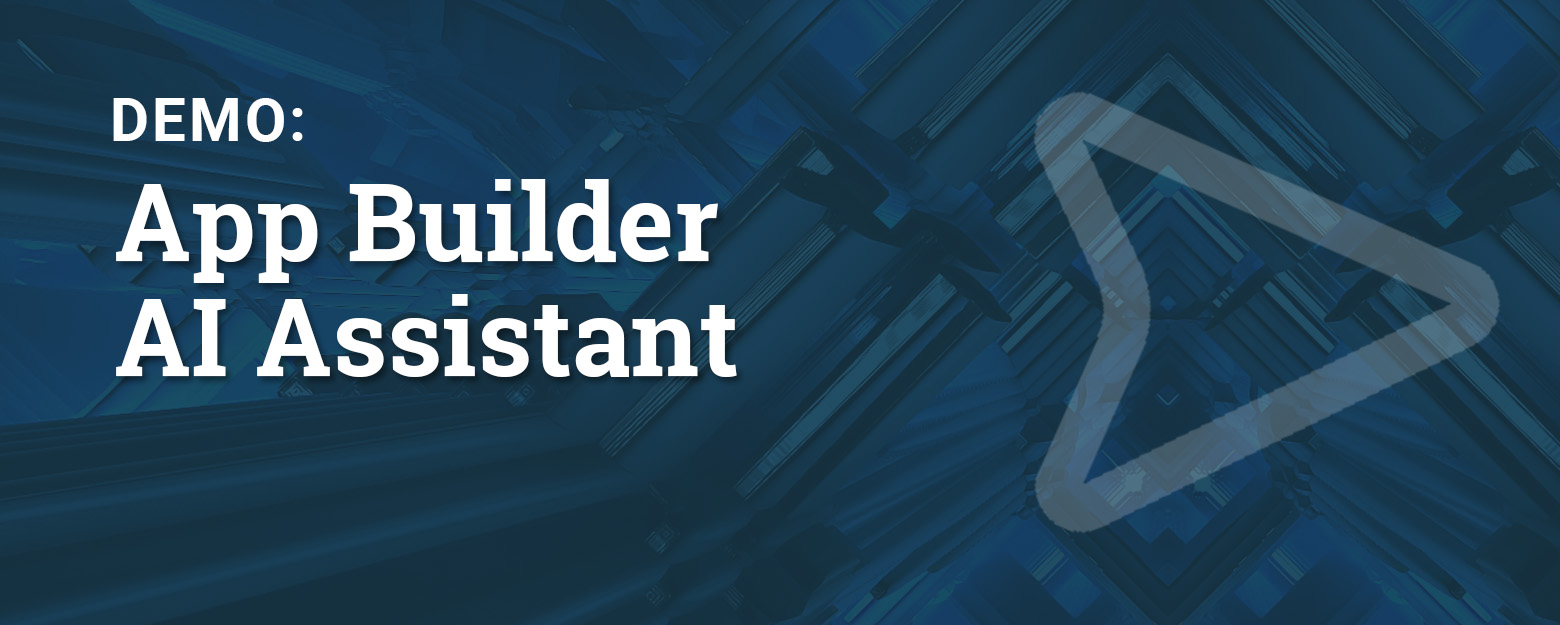By Geoff Blaine, Chief Marketing Officer
It’s easy to determine the direct impact that AI technology can have on the stock market — just look at the trend lines for companies like Nvidia, AMD and others. But to learn more about the indirect effects AI can bring, the ones that enhance business outcomes by empowering employees and automating tasks, it helps to ask the experts.
That’s why CNBC Europe’s flagship program, Squawk Box, invited Bill Conner to discuss the ways AI can be used to boost business productivity and profitability.

When implemented correctly, AI enables employees and individuals to take control of their needs and requirements, reducing their dependence on technical experts. “If you look at what Jitterbit is doing today, we’re infusing AI technology into our product portfolio in a way that empowers anyone to integrate, automate and build applications,” Conner explained to anchors Karen Tso and Steve Sedgwick.
Businesses can also have a hard time understanding whether a given technology is right or wrong for their business, or if it’s appropriate for the way that it’s being used, Conner said.
“I think it starts with asking the right question, which is ‘Where can I bring the most value to my business and how can I augment my existing business processes with AI, without betting the farm and without putting risks to my employees, my customers or even my suppliers?” Conner explained. “That’s why with low-code and our [AI] technologies, you can go back and forth between them, and this puts checks and balances for your business, your processes and your people.”
Democratizing Development with Strategic Technology
According to a recent policy paper by former British prime minister Tony Blair, public sector employees could save up to 40% of their time by using AI to eliminate paperwork and forms, streamline processes and cut down on routine tasks. While this figure seems fantastical, Jitterbit has seen the proof firsthand. “We have direct experience with our enterprise AI, and we’ve seen savings of up to 40%,” Conner told Yahoo Finance in July.
Finding new ways to boost productivity is especially critical amid the ongoing tech skills shortage, Conner told the Squawk Box panelists. While people often associate IT roles with things like cybersecurity training, network management and printer troubleshooting, IT personnel are frequently key players in the initiatives of other teams.
Jitterbit has found that when application, automation and integration needs aren’t being fulfilled, it’s most often due to an IT bandwidth issue — and with roughly 40 million tech jobs currently unfulfilled, it’s more important than ever to use technologies such as AI to augment existing IT expertise.
With AI, employees can instruct computers in natural language more easily than ever, making them more capable and effective. This shift allows employees to accomplish tasks they previously had to wait on overburdened IT teams or other specialists to handle, Conner explained.
And by unifying these capabilities within a single platform, Jitterbit offers organizations planning or in the process of business transformation even greater speed, efficiency and productivity.
The first of our AI advancements, including OpenAI and Azure OpenAI connectors, Connector AI Assistant, and the AskJB chatbot, are now in beta, and with the release of App Builder 4.0, App Builder AI Assistant is now in beta for all 4.0 customers. But as Jitterbit continues to grow our investment in AI, more developments will follow.
Empowering Employees with Strategic Transformation
According to our recent survey data, employees are enthusiastic about the prospect of using such technologies to increase productivity. More than 90% of respondents said they could see one or more benefits — such as less time spent gathering information, less reliance on IT colleagues, and more time to strategize with coworkers — from using AI in their work.
A majority even believe AI could make them better at their work: 88% of respondents say they’d like to learn new skills from AI, and that number grows to 98% among those 18-25.
Conner was quick to offer some caveats, however.
While meeting and exceeding compliance requirements such as GDPR is one way Jitterbit simplifies your AI decision-making process, we also know that business transformation isn’t always linear, and risk tolerance can change over time.
“One of the mistakes in technology is thinking that one size fits all,” he told the panelists. “The usual tech cycles of 18 months have already presented challenges for businesses to keep pace, but AI is three-month life cycles. You as a business can’t keep up with the underpinning technology fast enough. So we’re trying to do that for you.”



